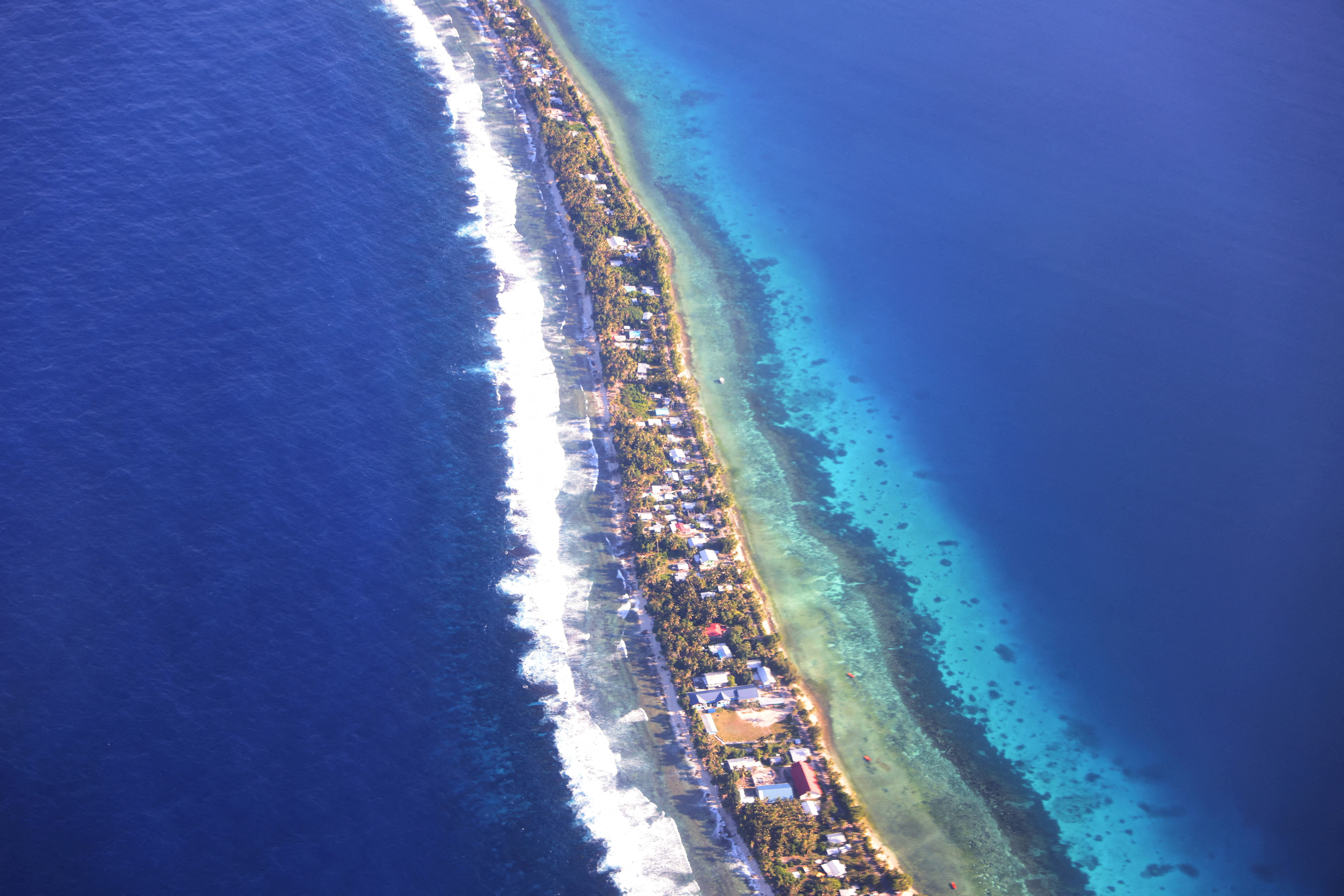Some big changes arrive with a bang, but usually they sort of sneak in and you barely notice them at first. Last week’s big change saw the creation of the world’s first climate-change visas. It’s a way of giving potential climate refugees some hope and some dignity, and it would certainly be an improvement on the current migration mess.
In late June all ten thousand residents of the South Pacific island state of Tuvalu were invited to enter a lottery whose 280 lucky winners will get a special climate-change visa that entitles them to work, study and live in Australia indefinitely. Over 3,000 – almost a third of the population – put down their $25 to register for a chance to leave.
Tuvalu is actually a nice place to live, although jobs are scarce and the entertainment is limited. The main drawback is that its nine coral atolls are very low-lying (two are already mostly flooded). They will all be underwater by 2080, or a good deal sooner if sea level rise speeds up as melting Antarctic and Greenland glaciers slide into the sea.
But that’s all right: there will be another 280 Australian visas every year, and New Zealand is providing another 75, so everybody should be safely off the islands long before they disappear. Pity about the slow loss of the language and culture as the Tuvaluans are dispersed among populations thousands of times bigger, but at least they will survive.
The Australian government is quite proud of its innovation: “This is the first agreement of its kind anywhere in the world, providing a pathway for mobility with dignity as climate impacts worsen.” It’s entitled to its little boast, but numbers matter. The hard truth is that this would not be happening if there were a million Tuvaluans in the same plight.
The key fact in any discussion about climate refugees is that the tropical countries will be hit sooner and harder than those closer to the poles. Yet the countries in the temperate zone created most of the warming, because they industrialised and began emitting greenhouse gases over a century ago.
The blame and the pain are both unequally distributed, and everybody in the poorer countries nearer to the equator knows that. As Atiq Rahman of the Bangladesh Centre for Advanced Studies put it: “From now on we need to have a system where, for every 10,000 tonnes of carbon you emit, you have to take a Bangladeshi family to live with you.”
I’m only picking on Bangladesh because it has more articulate scientists than most places. Forty per cent of the planet’s human population lives in the tropics, and as many as half of them will be facing situations so dreadful that they will have to move in the next generation.
A few tens of millions will probably have to start moving within the next ten years, and the remaining gates to safe havens elsewhere will slam shut against them. (They’re mostly closed already.) In most cases it will be ugly, and in some places it will be bloody.
No country is remotely prepared for this. The vast majority have not even acknowledged that it is coming. Even most scientists cling to utterly unrealistic expectations of sudden changes of heart and vastly accelerated decarbonisation that will somehow save us at the next-to-last moment.
That’s not going to happen. All human history and all current experience tell us that it won’t happen. Even if we halved our carbon dioxide and methane emissions next year, crashing the global economy in the process, the momentum of the warming is such that almost nothing would change in the climate forecasts of the next ten years.
The only action that could change that future now (and it doesn’t come with a guarantee) is geoengineering to cool the planet. It’s only treating the symptoms, of course, but heat is the ultimate cause of all the other climate disasters and it must be kept down while we work as fast as we can at ending our emissions.
Geoengineering (also known as climate repair) is feasible, not impossibly expensive, and probably safe as it largely mimics or expands upon existing atmospheric processes. Introduce it gradually, monitor it closely, and hope it works well, because we are running out of options.






Click here to change your cookie preferences